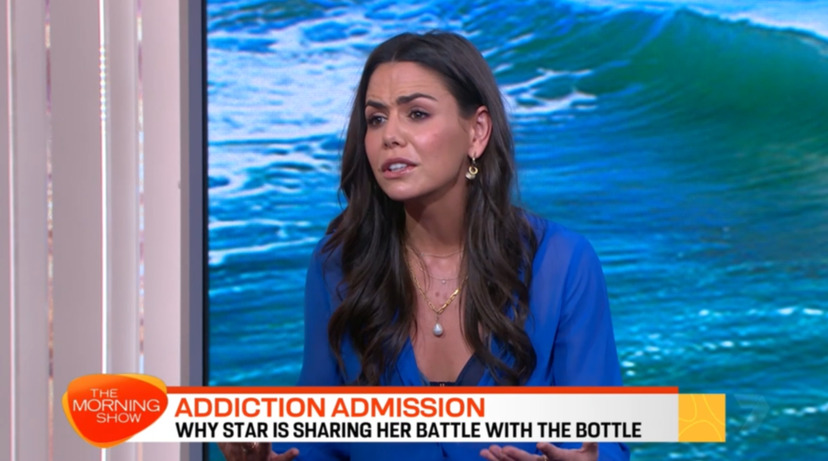The part of Mackenzie Booth on the iconic drama series Home And Away was not only a career triumph for actress Emily Weir; it also helped her find her “happy place” in her personal life.
Weir only lately begun speaking publicly about her anxiety episodes, as well as revealing that she is now a member of Alcoholics Anonymous after overcoming a drinking addiction.

Weir revealed her mental health troubles began shortly after high school in an interview with Kylie Gillies and guest host Sam Mac on The Morning Show.
“I was 19 when it all started to come to light, and it’s just so terrifying because you’re so vulnerable and oblivious of what’s going on,” she added.
“It was critical to gain a thorough understanding of mental health and the triggers, as well as where it all began with trauma and everything else.”
“Now I know how to deal with it and cope in a healthy and productive manner.”

Weir’s problems led to her having a drinking addiction, and she explained that she is sharing her story to help others who may be experiencing similar problems.
“I choose to open up because I believe that you must give a little and be transparent.” “We have such a wonderful platform to share with others,” she explained.
“I believe the most important aspect of mental wellness is not to feel alone.” It’s easy to feel isolated in your own skin, and I believe it’s encouraging to have role models that freely and honestly discuss mental health and their challenges.
“It creates a space for people to seek help and recover, which is the most important thing.”

Weir also went into great depth about how her anxiety attacks made her fear for her life at first.
“It’s different for everyone, but for me, it started with feeling like I couldn’t breathe, which led me to believe I was having a heart attack, and then it developed into shaking and just trying to catch my breath,” she explained.
“It seems like you’re on the verge of fainting out and everything.” It’s quite distressing, and as a result, you begin to lose faith in yourself because you believe you have no control.
“It’s critical to really deconstruct it and develop some coping techniques, as well as talking to the proper people and getting the right support.”
“Because you can go and have an experience and come out the other side.”

